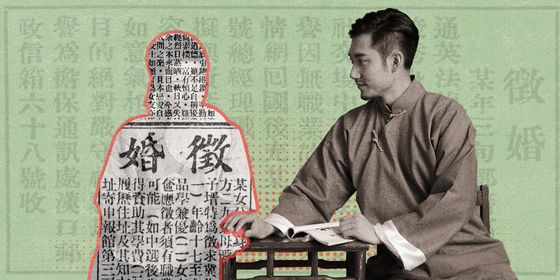Friends and family from afar can be a burden instead of joy
The issue of overbearing Chinese in-laws has become a hot topics lately, after a post by netizen @依恋雨中的你, complaining how her husband’s relatives frequently drop by the couple’s apartment unannounced and stay for days, went viral last week.
The netizen said she was from Wuhan, capital of Hubei province, while her husband was from a smaller Hubei city. The couple had bought a duplex apartment in Wuhan with their parents’ help, but unfortunately, the husband’s more provincial relatives seemed determined to turn the apartment into a free hotel while on errands in the city, and with one uncle effectively moving onto the sofa. Meanwhile, there is little in the way of reciprocation, such as gratitude, return invitations, or even hongbao for their children during Spring Festival. The husband, the wife added, has protested that his parent’s share toward the purchase price entitles the extended family to stay.
The OP hostess’ situation touched a raw nerve for many Chinese, who have shared similar situations from their past, some of which also hint at a rural-urban divide:

This was how I grew up. Coming home after school, I’d often find some aunt or uncle settled in our home with their luggage…or a cousin squeezed onto my bed

My family moved into a new apartment on November 1, but it had already been lived in; a dozen people from my aunt’s entire family, from grandparent to grandchild, lived in our new apartment

This is the truth! My family is from the city, and we never had any relatives stay over, but my husband’s village relatives are unbearable: older sister, younger sister, younger sister’s husband, and their children, all together, and don’t call in advance; they call at 10 p.m. and say they’ll arrive at 12, I was speechless when they all showed up together
Plenty showed their understanding and support for the OP:
Home is one’s most private space. I don’t like it when others come to stay, visiting is fine

Sensible people would not want bother others at home

Wherever I go travel, I never stay with relatives, but always a hotel, because it’s inconvenient; if we need to meet, isn’t it enough to meet for a meal?
However, some netizens regard being hospitable and family-oriented as traditional Chinese virtues. As Confucius said, “Isn’t it joyful to have friends visiting from afar?” Even if they are not actually happy to see these friends and relatives, ther could be need to save the mianzi (面子, “face”) for both parties concerned—the guest’s by not being turned away, and the host’s by letting them demonstrate they have the resources to accommodate guests.
I feel like it’s no big deal when relatives come stay; isn’t that what family should do?

It’s different for everyone. If it were me, and my uncle, I’d wish he stayed at my house and not a hotel, my reasoning being it’s more convenient to meet up at home, and there’s more warmth. After a long separation, there’s so much to catch up…also, older people don’t like spending money whether it’s theirs or yours, so he’d want to save money whenever possible
Nothing should be taken to extremes. Though I also dislike having a relative who isn’t close staying at my home, if they show up for a night or two I would not refuse them, not to save their face but my husband’s
Meanwhile, some netizens pinpointed the problem to class differences arising from marriage between urban and rural families, who may have different attitudes toward kinship. Some suggest that relatives use crashing as a way to show (or test) their affection.
Parents’ siblings are considered close family in the countryside. In the village, your mother’s brother is like your father; the OP is from the city and may not understand this relationship…when they stay at their nephew’s house, it means they consider you very close family, and they want to show it…cherish it, that’s my opinion
On the other side, some used this case to argue that an ideal marriage is between two parties on equal social status, or otherwise, the couple may encounter troubles in their family life.
That’s what happens when you marry rural

[I’m] from the countryside – [I] agree. Someone people have a lot of relatives, since it’s common for the older generations in the village to have four to eight siblings. Later, with the family-planning policy, everyone has just one or two kids, so there’s a horde of people leeching off these one or two people, never satisfied, and God forbid if you refuse them. They’ll take every advantage of you and tell you how sympathetic and successful you are, and curse you behind their back. It’s common
In this sense, guests could also be afraid that going to a hotel when they already have family in a certain place may be seen as a “snub.” Family relations and the giving of mianzi are quite the social minefield, only likely to get more complex as Chinese family and home sizes, resources, and values toward interpersonal relationships change.
Ironically, the root cause of the whole fuss— the meddlesome uncles and aunts—will likely know nothing about it, despite all the heated debate, as people of that age and class rarely have social-media accounts or awareness.
Cover image from Pexels












